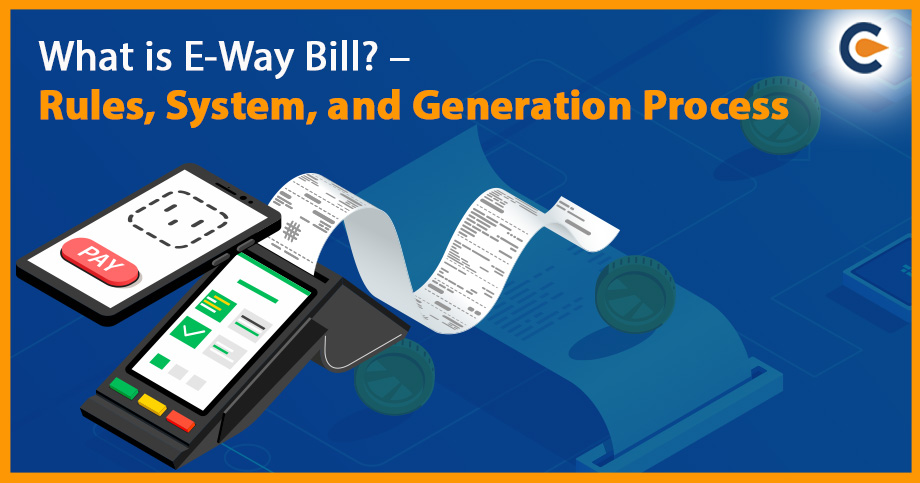The Goods and Services Tax (GST) has already been adopted by a few of businesses, but the vast majority of others have not done so. Any company that intends to register under the GST Law in order to collect taxes on behalf of the government and claim input tax credits (ITCs) for taxes paid on incoming supplies is required to first acquire a one-of-a-kind GST number (GSTIN) from the relevant tax authority. This is necessary in order to be eligible for registration under the GST Law. In this article, we’ll walk you through the GST Registration for Private Limited Company.
What is a Private Limited Company?
A private limited company, sometimes known as a corporation, is a kind of business that is privately owned and operated. Members of a Private Limited Company are only liable for the amount of responsibility that corresponds to the number of shares that each member of the company really owns. It is not possible to buy or sell shares of a private limited company on a public stock market. Businesses and dining establishments that do not offer their wares on a global scale are good examples of the kind of company known as a private limited company. Comparing a Private Limited Company to other types of business organizations will help you get a better understanding of the PLC structure.
Benefits of GST Registration for Private Limited Company
Goods and services tax is shortened to GST, which is an acronym. The following is a list of the indirect taxes that are currently in effect in India: Every qualifying firm is needed to receive a GSTIN in order to collect taxes and deliver them to the government by filing an application for GST Registration. This is mandated by the GST Regulations and is a requirement of the GST.
The Following Is A List Of The Benefits Of GST Registration For Private Limited Company:
- Convenience in the Preparation of Tax Returns: The integration of the Indian economy and the consolidation of a number of indirect taxes were both results of the implementation of the Goods and Services Tax (GST).
- The Costs Of Many Products And Services Have Been Brought Down: The introduction of the Goods and Services Tax, sometimes known as the GST, has resulted in a reduction in overall costs by eliminating the cascading impact of many value-added taxes.
- GST Helps to cut down on the Amount of Time Spent Preparing Taxes: If they register for the GST, small businesses have the opportunity to avoid time-consuming tax services. Businesses that provide a service or sell a product but have annual revenues of less than 20 lakhs (in certain states) or 40 lakhs are exempt from GST payment and, as a result, are not required to submit GST Returns or register for GST. This exemption applies whether the business provides a service or sells a product. Notwithstanding this, these companies have the option of voluntarily registering for the GST in order to take advantage of the tax.
- Reduces The Possibility That Bribery or Other Financial Transactions May Take Place: The Goods and Services Tax (GST) was introduced in order to cut down on instances of fraud and illegal cash transactions. Since the system can be accessed online, the possibility of fraud is significantly decreased. Small firms are therefore spared from the burden of indirect taxes.
- Standards for the Administration of Taxes Already Exist and Are Adhered to: A centralized registration process is permitted under the GST. When a registration process is involved, there is a greater degree of consistency in the collection of taxes. In today’s age of technology, the availability of online filing options has simplified the process of completing company tax returns.
- A Decrease In The Amount Of Evasion of Tax: Since the general sales tax was introduced, there has been a considerable reduction in tax avoidance.
Checklist for GST Registration for Private Limited Company
While creating a private limited company in India, here is a list of things that you need to guarantee that your company is in conformity with the Goods and Services Tax (GST). Below is list of things comprised on this checklist for GST Registration for Private Limited Company:
- It is required that an Indian citizen or a permanent resident serve in the role of “first director” or “promoter” for the company.
- It is required that the company’s main office be located in India.
- In order to establish a private limited company, an initial paid-up capital contribution of at least one lakh rupees is required or as prescribed.
- In order to establish a private limited company, there must be a minimum of two people serving in the role of directors.
- It is necessary to have a Director Identification Number in order to be able to designate directors (DIN).
- The drafting and submission of the Memorandum of Agreement and Articles of Organization with the Registrar of Companies (ROC) Allocation of shares has to be finalized within the first sixty days after the company is established.
- A PAN is required in order to establish a bank account as well as submit tax returns (Permanent Account Number).
- To deduct taxes from wages, salaries, and other forms of compensation, TAN is necessary.
- Companies having yearly sales of more than 20 lakh rupees are required to register for the Goods and Services Tax (GST).
Documents Needed GST Registration for Private Limited Company
- Organization is governed according to the charter that it was given: This document contains the company’s Articles of Association as well as its Memorandum of Association.
- Certificate of Incorporation: At the time of the business’s incorporation, the ROC was responsible for issuing this certificate to the company.
- The Record of Accounting: Any company that is allowed to do business lawfully has to have a Permanent Account Number[1] (PAN) card that is currently active and issued in their name.
- GST Obtaining Your Certificate of Enrollment: A certificate proving that a company has applied for a GST will be successfully issued by the GST authorities. A proper tax identification number is required for every legally recognized company.
- The Provenance of the Statements of Accounts: Every company has its own separate bank statement records and details of all the transactions that occurred within the relevant time period kept.
Conclusion
After a thorough reading of the blog, we come at the conclusion that it is required for the private limited companies to register themselves under GST, not only is it a requirement, but it also offers various benefits to the companies as discussed.
Also Read:
Actionable Strategies To Avoid GST Registration
How To Avail A Company Registration Certificate?
GST Online Registration Process: A Complete Guide











